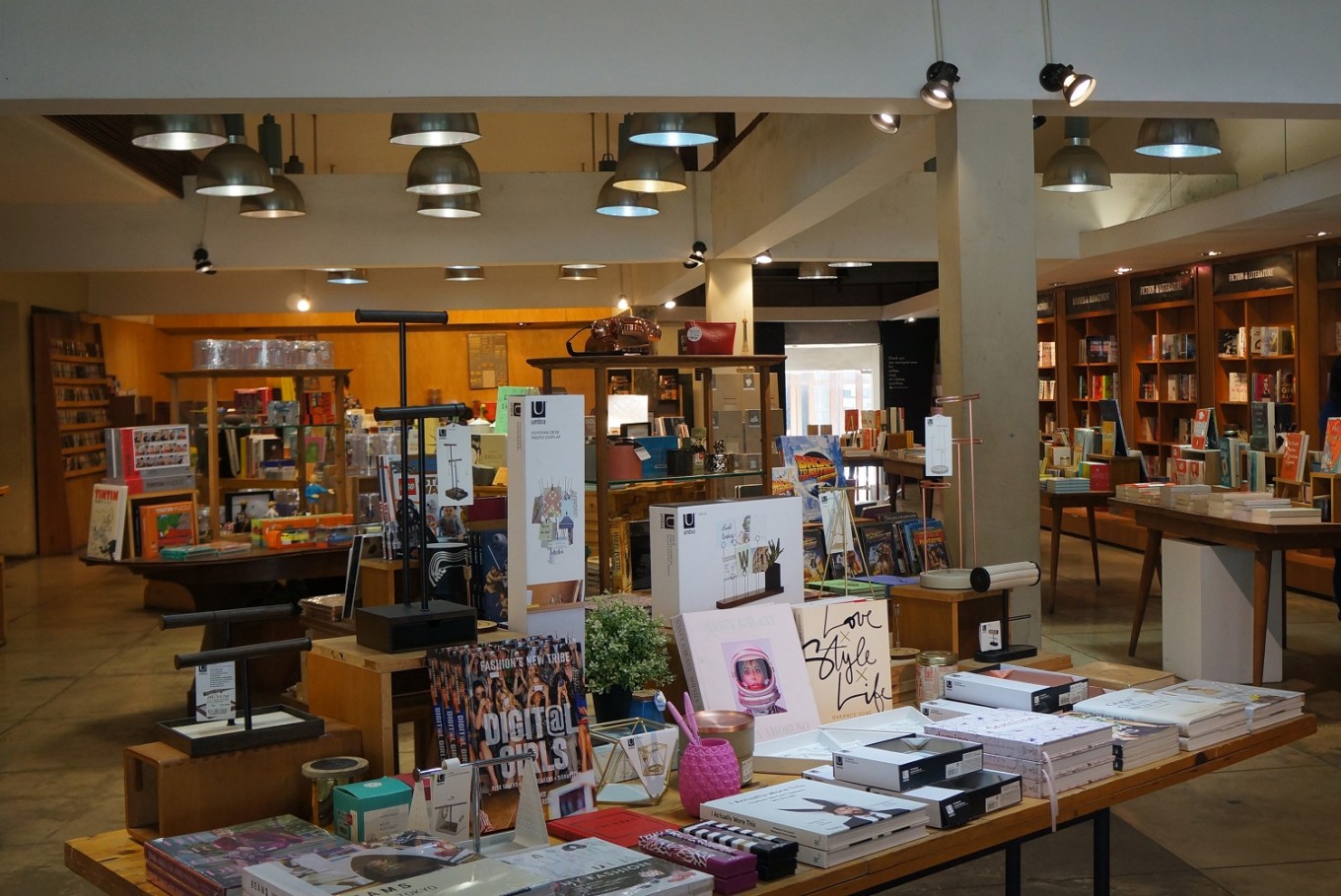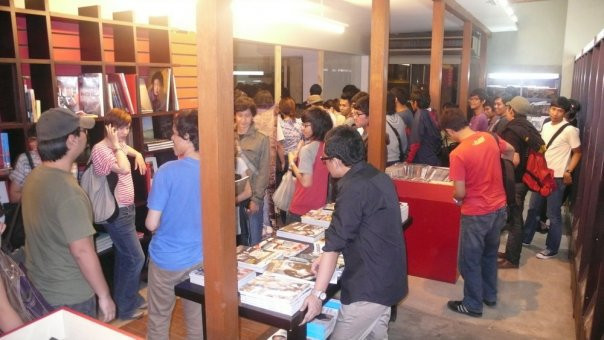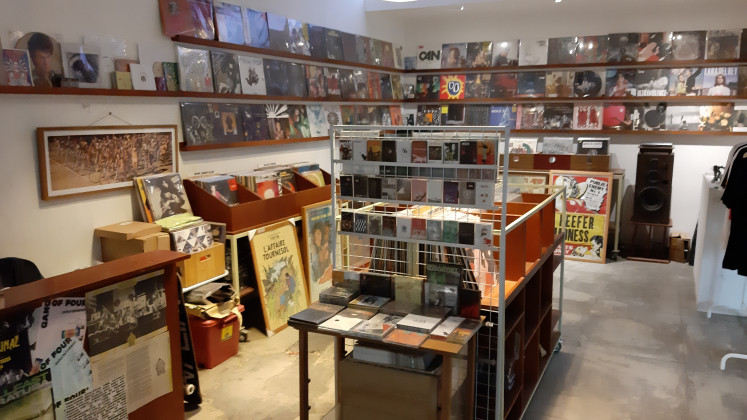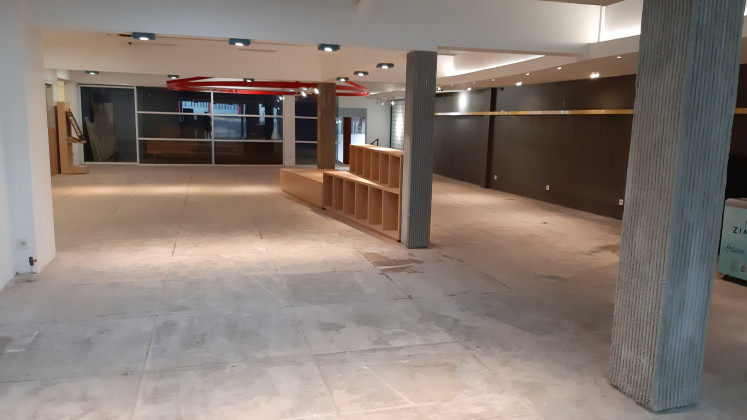Popular Reads
Top Results
Can't find what you're looking for?
View all search resultsPopular Reads
Top Results
Can't find what you're looking for?
View all search resultsEpilogue for an era: The story of Aksara Kemang
How a bookstore shaped a culture.
Change text size
Gift Premium Articles
to Anyone
T
he December 2020 closing of Aksara bookstore's first and main branch in Kemang marked the end of an era for a venue that had become very significant for the city’s creative types.
A book and lifestyle haven for many, Aksara’s stylishly comfy Kemang branch was opened in 2001 by businessman and book aficionado Winfred Hutabarat, along with fellow businessman Davy Djohan and writer Laksmi Pamuntjak. Then in his early 30s, Hutabarat had just returned from his studies in the United States, inspired by the bookstores he saw there in which interaction between members of the creative communities played a key part in the business.
“People saw bookstores as places where you only shopped for books,” he told Tempo magazine in 2001. “But they could be more than that.”
It worked. Aksara became a “lifestyle” hub at a time when that term had not yet become ubiquitous as a marketing selling point. It ended up shaping the cultural and creative tastes of many young Indonesians, which they have carried on into adulthood.
Many feel that Aksara Kemang's closing is the end of an era.
Visual artist Andra Semesta describes it a place that “expanded my knowledge within the literary, music and art world”.
The last few years
Along the way, Aksara began selling more than books, including hobbyist items like band T-shirts and retro collectables. In 2015, it began to make way for a cross-community integration concept.
To stay in the game, it brought in strong community-nourishing tenants such as the Kinosaurus mini-cinema and the Ganara Art Space to operate in an expanded space in 2018.
The revitalized space gave the place a fresh boost of energy, with even more tenant diversity, including a new record store, a photography lab and a Japanese restaurant. To strengthen its books division, Aksara went on to partner with local publisher POST Santa.
“The revitalization contributed to improved book sales due to tighter selections and an increase in visitors coming to the space,” explained Aksara director Adinda “Dinda” Simanjuntak. She has been with Aksara since 2002.
A crowd gathers for a music showcase held at Aksara Kemang, ca. 2010-2011. Due to the popularity of Aksara Kemang in the music community, the store would usually hold showcases. (ak.sa.ra/Facebook/Unknown (Aksara archive))“We came full circle back to the original Aksara Kemang concept of 2001-2007 when the place became a locale for creative communities to hang out and connect with each other,” Dinda added.
By this point, Aksara had ceded control of the building to the 3000 Group (which describes itself as a “Lifestyle group of Future-Oriented brands”) and occupied the space as a tenant.
But then COVID-19 hit. Forced to sell its goods online, Dinda admitted to losing ground.
“Online sales were not our milieu,” she said. Weak sales forced them to move out.
There is relatable sadness in Dinda's words.
Former Aksara music director Hanin Sidharta acknowledged the difficulty of balancing sales and rent in an era when bookstores were fading into irrelevance.
“The situation is not how it used to be, what with the ease of buying things online,” he said.
Looking back, Sidharta, who has started many successful businesses since, felt that the years were character building.
“Aksara Kemang kickstarted my entire life in music and in retail. It was my ‘school’, so to speak, as it taught me everything I knew about the lifestyle sector,” he said.
Community-building and culture-shaping
At the time of Aksara's opening, other English-language bookstores such as Times Bookstore and QB World were already operating successfully. But what Aksara nurtured beyond communities with spaces for workshops and gatherings, was a collection that appealed to the niche, importing collections that went beyond the mainstream.
“When the store first opened in 2001, there weren’t as many booksellers and specialty retail stores as there are today,” Dinda said.
The idea, Dinda explained, was to cater to creative communities - a marketing strategy that they correctly assessed would bring in a diverse clientele.
The successes of the Kemang store resulted in expansion. Between 2003 and 2008, Aksara opened branches in such malls as Cilandak Town Square, Pacific Place and Plaza Indonesia eX. Gradually, its brand and influence grew, although all of the mall locations would close by 2018.
La-La Records, currently occupying the rear area of the Kemang compound, has been the space’s disseminator of music for the past 2 years. Before La-La, Aksara housed its own, famous, music section from 2002 until the 2010s. Monka Magic Vinyl carried on their torch from 2010 until 2018. (Dylan Amirio/Dylan Amirio)One of the communities that would shape Aksara's image was that of music fans. Curated by David Tarigan, a key player in the independent scene, Aksara's collection ranged from then-obscure international independent bands to retro acts that were not necessarily popular in Indonesia.
“Working there, I was really happy, because I was getting paid to do what I loved,” Tarigan reminisced. “There was always something happening, be it the conversations I had with the people there […] or just the stocking of records for the store itself.”
A community of crate-diggers that frequented the store ended up forming bands whose records were eventually released by Aksara Records, established in 2004 by Tarigan and Hanin. Indisputably, the label became the first big “indie label” in the country, releasing artists that would bring underground music to the mainstream media.
Aksara bands like Sore and The Adams would begin appearing in major films and concerts while also becoming the main music young Indonesians listened to from the mid-to-late 2000s.
“I believed at some point our ‘indieness’ and the market would meet, and they did [...] In the end, good music is good music,” Hanin quipped.
The area where Aksara inhibited for 20 years sits empty for now, awaiting further renovation from building owners 3000 Group, who will maintain this space as a lively, community space going forward. (Dylan Amirio/Dylan Amirio)The present
The end of Aksara Kemang does not necessarily mean the end of Aksara itself. In December 2020, Aksara secured a collaboration with the Dia.Lo.Gue artspace, also in Kemang, where it now operates a bookstore within the artspace’s premises.
“Right now, we are exploring ways to maintain a physical presence while serving the community with a concept that satisfies curiosity and inspiration and not just bookselling,” explained Dinda, adding that Aksara was currently exploring event ideas to make the most out of this collaboration.
“Aksara needs to open new doors, as it always tried to, and it should always serve a purpose”.














